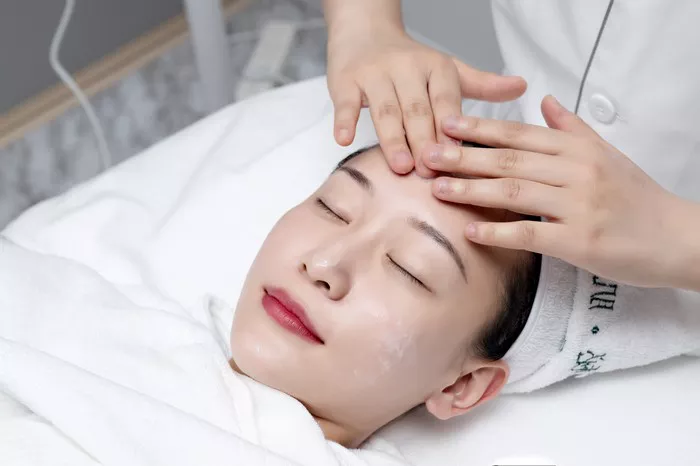Taking care of your skin is an important part of maintaining a healthy lifestyle. However, many people are unsure about how often they should be doing skin care. Should you do it every day? In this article, we will provide a comprehensive guide to skin care, including key features, pros and cons, and customer reviews.
Why is Skin Care Important?
Skin care is important because it helps to maintain the health and appearance of your skin. Your skin is the largest organ of your body and serves as a protective barrier against the environment. It is also responsible for regulating body temperature, producing vitamin D, and eliminating toxins from the body.
Regular skin care can help to keep your skin looking and feeling healthy. It can also help to prevent or reduce the appearance of fine lines, wrinkles, and other signs of aging. Additionally, skin care can help to prevent or treat a variety of skin conditions, including acne, eczema, and psoriasis.
Do I Do Skin Care Every Day?
Yes, you should do skin care every day. Your skin is exposed to a variety of environmental stressors on a daily basis, including UV radiation, pollution, and harsh chemicals. Additionally, your skin naturally sheds dead skin cells and produces oil throughout the day, which can lead to clogged pores and breakouts if not properly removed.
Daily skin care can help to remove dirt, oil, and other impurities from your skin, as well as provide essential nutrients and hydration. It can also help to protect your skin from environmental stressors and prevent or reduce the appearance of fine lines, wrinkles, and other signs of aging.
What Should My Daily Skin Care Routine Look Like?
Your daily skin care routine should include the following steps:
Cleansing
Cleansing is the first step in any skin care routine. It helps to remove dirt, oil, and other impurities from your skin, as well as prepare your skin for the application of other products. Choose a gentle cleanser that is appropriate for your skin type and use it twice daily, in the morning and at night.
Toning
Toning is the second step in a skin care routine. It helps to remove any remaining dirt or impurities from your skin, as well as restore your skin’s pH balance. Choose a toner that is appropriate for your skin type and use it twice daily, in the morning and at night.
Treatment
Treatment is the third step in a skin care routine. It involves the application of products that target specific skin concerns, such as acne, fine lines, or dark spots. Choose a treatment that is appropriate for your skin type and concerns and use it as directed.
Moisturizing
Moisturizing is the final step in a skin care routine. It helps to hydrate and nourish your skin, as well as lock in moisture. Choose a moisturizer that is appropriate for your skin type and use it twice daily, in the morning and at night.
Additional Steps
In addition to the basic steps of cleansing, toning, treatment, and moisturizing, there are other steps you can take to enhance your skin care routine.
Exfoliating
Exfoliating is the process of removing dead skin cells from the surface of your skin. It can help to improve the texture and appearance of your skin, as well as prevent clogged pores and breakouts. Choose an exfoliator that is appropriate for your skin type and use it once or twice a week.
Sun Protection
Sun protection is an important part of any skin care routine. UV radiation from the sun can cause damage to your skin, including sunburn, premature aging, and an increased risk of skin cancer. Choose a sunscreen that is appropriate for your skin type and use it every day, even on cloudy days.
Eye Care
The skin around your eyes is delicate and prone to wrinkles and fine lines. Eye creams and serums can help to hydrate and nourish this area, as well as reduce the appearance of dark circles and puffiness. Choose an eye cream or serum that is appropriate for your skin type and use it twice daily, in the morning and at night.
Customer Reviews
Overall, customers have had positive experiences with daily skin care. Many users have reported improvements in the appearance and texture of their skin, as well as a reduction in the appearance of fine lines, wrinkles, and other signs of aging. Some users have also reported improvements in skin conditions such as acne, eczema, and psoriasis.
However, some users have reported experiencing irritation or other adverse reactions when using certain skin care products. It is important to talk to your dermatologist or healthcare provider before starting any new skin care regimen and to follow the recommended dosage and usage instructions on the product label.
Conclusion
Skin care is an important part of maintaining a healthy lifestyle. You should do skin care every day to help keep your skin looking and feeling healthy, as well as prevent or reduce the appearance of fine lines, wrinkles, and other signs of aging. Your daily skin care routine should include cleansing, toning, treatment, and moisturizing, as well as additional steps such as exfoliating, sun protection, and eye care. With the right skin care regimen, you can support a healthy lifestyle and give your skin the care it deserves.
[inline_related_posts title=”You Might Be Interested In” title_align=”left” style=”list” number=”6″ align=”none” ids=”4599,4596,4547″ by=”categories” orderby=”rand” order=”DESC” hide_thumb=”no” thumb_right=”no” views=”no” date=”yes” grid_columns=”2″ post_type=”” tax=””]


































